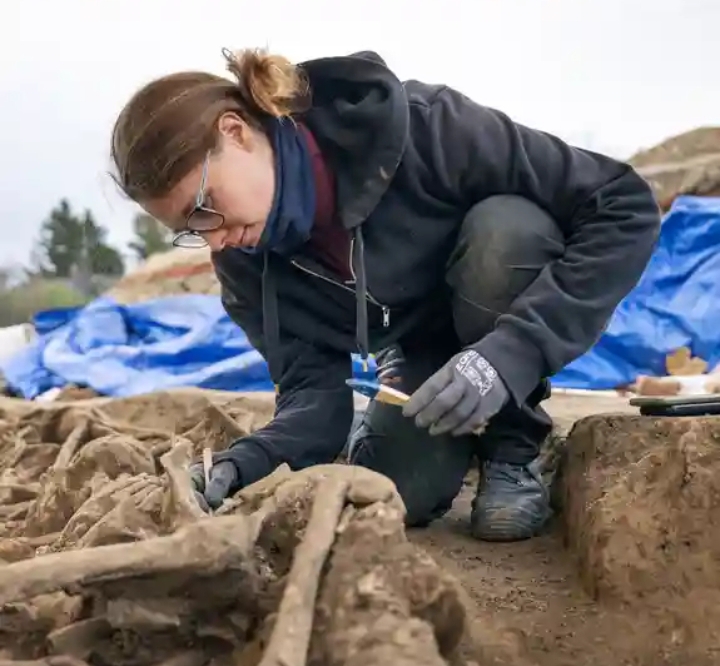Archaeologists in Vienna uncovered the remains of around 150 Roman soldiers from the 1st century AD, likely killed in battle. The rare discovery of burial remains, instead of cremated ones, is significant. Further research is ongoing.
Rare Discovery: 150 Roman Soldiers' Remains Uncovered in Vienna


Archaeologists from the Vienna Museum in Austria announced on Wednesday that they had uncovered the remains of approximately 150 soldiers in a mass Roman grave. The discovery was made during construction work to renovate a football pitch in the residential and industrial district of Simmering, which led to the unearthing of the skeletal remains in October.
Following expert analysis, it has been confirmed that the remains date back to the 1st century of the Roman Empire. Initially, the remains of 129 individuals were identified at the site, but further excavation revealed additional bones, prompting experts to estimate that the total number of bodies exceeds 150.
The Vienna Museum explained that the discovery of skeletal remains from this period is highly unusual, as cremation was the predominant burial practice in the Roman Empire until the 3rd century AD. Kristina Adler-Wölfl, Head of City Archaeology, elaborated on this rarity, stating, "As cremation burials were common in the European parts of the Roman Empire around 100 AD, body burials were an absolute exception. Finds of Roman skeletons from this period are therefore extremely rare."
The remains were determined to be of young males, aged between 20 and 30 years, who appeared to have been killed in battle. Examination of the bones revealed injuries from weapons such as swords, spears, daggers, and projectile bolts. This evidence suggests that these individuals were likely part of a military operation that ended in a catastrophic defeat.
Michaela Binder, the lead archaeologist on the excavation, emphasized the significance of the find, stating, "Within the context of Roman acts of war, there are no comparable finds of fighters. There are huge battlefields in Germany where weapons were found, but finding the dead is unique for the entire Roman history."
The Vienna Museum indicated that further in-depth investigations are underway, and research into the discovery is still in its early stages.

 বাংলা
বাংলা  Spanish
Spanish  Arabic
Arabic  French
French  Chinese
Chinese 
